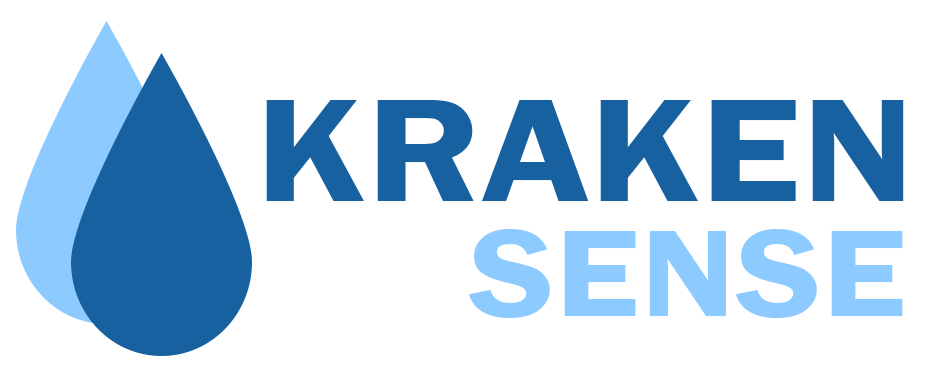Clostridium perfringens (cpa gene) in Food and Healthcare Settings
Clostridium perfringens is one of the most common causes of foodborne illness in the United States, sickening about one million people each year. Often linked to improperly stored or reheated meat and poultry, this spore-forming bacterium produces toxins, particularly through the cpa gene, that trigger rapid-onset gastrointestinal distress. While many cases resolve on their own, C. perfringens can cause far more severe complications, especially in vulnerable populations or when it enters the body through wounds. With its ability to survive heat and form protective spores, C. perfringens presents a persistent challenge in both food service and healthcare environments. Kraken Sense’s real-time pathogen detection technology offers an advanced solution for early detection and response, helping prevent outbreaks and safeguard public health.
Understanding the Threat of Clostridium perfringens
Clostridium perfringens is a spore-forming, anaerobic bacterium commonly found in the environment, including soil, raw meat, and poultry. Food poisoning caused by C. perfringens occurs when contaminated food is left out at unsafe temperatures, allowing the bacteria to multiply and release toxins, especially the C. perfringens alpha-toxin, encoded by the cpa gene.
Symptoms usually appear 6 to 24 hours after consuming contaminated food and include:
Watery diarrhea
Stomach cramps
Nausea (rarely)
Fever and vomiting (uncommon)
Most people recover within a day or two without needing medical treatment. However, in severe cases, particularly among the elderly, immunocompromised, or hospitalized patients, complications like dehydration, sepsis, or wound infections (e.g., gas gangrene) can occur.
How C. perfringens Survives and Spreads
One of the reasons C. perfringens is so persistent is its ability to form heat-resistant spores. These spores can survive cooking and then reactivate when food cools improperly or is stored at room temperature. Even a short lapse like leaving cooked meat out for an hour can create the perfect conditions for bacterial growth.
In healthcare and long-term care facilities, the risk increases due to large-scale food prep, shared meals, and vulnerable populations. Hospitals also face threats from wound contamination, where C. perfringens can cause severe infections such as gas gangrene and anaerobic cellulitis.
How Kraken Sense Detects C. perfringens in Real-Time
Kraken Sense’s qPCR-based platform can identify the cpa gene, a key virulence factor in C. perfringens, in under 60 minutes. This allows for rapid, on-site detection of contamination in food, water, and environmental surfaces, well before symptoms emerge or illness spreads.
Continuous Sampling for High-Risk Environments
Whether it’s a hospital kitchen, cafeteria, or long-term care facility, Kraken Sense continuously monitors surfaces, water lines, or prepared foods for C. perfringens. This helps ensure that contamination is identified and removed before it affects patients or staff.
Immediate Alerts and Containment
Upon detecting the cpa gene, Kraken Sense automatically alerts infection control teams, food safety officers, or kitchen managers. This enables rapid action: discarding contaminated food, sanitizing surfaces, or isolating vulnerable patients.
Remote Oversight and Predictive Monitoring
Kraken Sense’s web-based dashboard provides real-time data access from any location, making it easier for administrators, inspectors, and public health officials to track contamination patterns and proactively address risks.
Benefits of Real-Time C. perfringens Detection
Outbreak Prevention: Early detection helps facilities remove contaminated food before it causes illness in healthcare or institutional settings.
Enhanced Food Safety: Real-time monitoring ensures food is stored, prepared, and served safely, reducing liability and protecting reputations.
Stronger Patient Protection: Vulnerable populations, especially those in hospitals or nursing homes, are safeguarded through faster pathogen response.
Regulatory Compliance: Kraken Sense supports standards from local health departments and national food safety agencies by providing consistent monitoring and documentation.
Real-World Application: Safeguarding Healthcare Meal Services
In a recent hospital food service audit, Kraken Sense’s detection system identified low levels of C. perfringens on a warming tray used to hold cooked poultry. An automated alert prompted immediate cleaning, food disposal, and retraining on holding time protocols. No patients became ill, and the issue was contained before reaching outbreak status. This proactive response preserved patient health and prevented reputational damage.
Why Kraken Sense Is the Right Fit for Food and Healthcare Settings
Targeted Molecular Detection: Kraken Sense identifies C. perfringens through its cpa gene, offering highly specific detection of toxigenic strains.
Scalable and Easy to Install: Designed to integrate seamlessly into kitchens, hospital food prep areas, and wastewater systems.
Fast, Automated Results: From sample to alert in under 60 minutes, ideal for high-risk environments where time matters.
Data Visualization and Reporting: Supports inspections, audits, and outbreak investigations with full data access and logging.
Looking Ahead: Fighting Foodborne Illness with Technology
As foodborne illness continues to impact public health, real-time detection systems like Kraken Sense are revolutionizing how we respond to pathogens like C. perfringens. By focusing on early warning and prevention, especially in healthcare, schools, and food production facilities,s can move beyond reactive responses to proactive safety strategies.
Conclusion
Clostridium perfringens may often be mild, but in the wrong setting, it can be deadly. With Kraken Sense, early detection of the cpa gene empowers healthcare providers, food safety professionals, and public health teams to act before illness spreads. From institutional kitchens to patient care units, Kraken Sense ensures cleaner environments, safer meals, and healthier outcomes.
